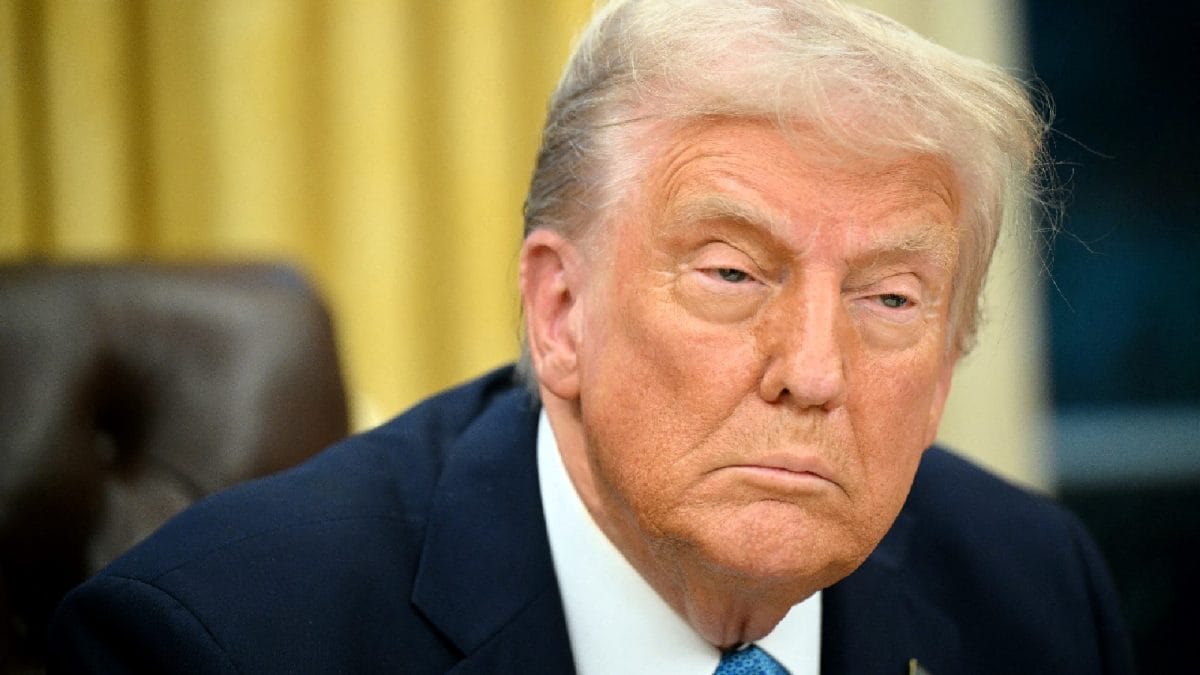New tariffs imposed by former President Trump are raising costs for businesses and consumers, impacting small retailers, manufacturers, construction, and agriculture, leading to inflation, supply chain disruptions, and economic uncertainty across the U.S.

Trump’s tariffs spark economic concerns, raising costs for businesses and consumers
From small ice cream shops in California to medical suppliers in North Carolina, businesses across the U.S. are preparing for the financial impact of new tariffs imposed by former President Donald Trump. The new import taxes, which took effect Tuesday, target goods from America’s three biggest trading partners—Canada, Mexico, and China.
How will these tariffs impact American households?
According to The Budget Lab at Yale University, these tariffs could cost the average American household an additional $1,000 to $1,200 per year in purchasing power. Meanwhile, Gregory Daco, chief economist at EY, predicts the tariffs will push inflation up by 0.4 percentage points this year. He also forecasts a slowdown in US efconomic growth, from 2.8% last year to a 1.5% decline this year and a 2.1% dip by 2026.
Small businesses feeling the pressure
For many small business owners, these tariffs couldn’t come at a worse time.
Zach Davis, co-owner of The Penny Ice Creamery in Santa Cruz, California, has already been battling rising costs due to inflation. Now, he fears tariffs will make things even worse. His business, which specializes in unique flavours like “strawberry pink peppercorn” and “chocolate caramel sea salt,” depends on equipment like refrigerators, freezers, and blenders—many of which are imported from China. With costs already high, another round of price hikes may be inevitable.
Even small items like sprinkles, which Davis imports from Canada, will be affected. “Our margins are razor-thin,” he said. “If a tariff wipes out even 10 cents per scoop, that could be the difference between being profitable and just breaking even—or even ending up in the red.”
In North Carolina, Casey Hite, CEO of Aeroflow Health, is bracing for the impact as well. His company supplies breast pumps and other medical products, many of which are sourced from China. Since insurance companies lock in reimbursement rates in advance, Aeroflow will be forced to absorb the higher costs, potentially affecting the affordability of healthcare supplies for American patients.
“This is going to hit consumers, no question,” Hite warned. “It may take a couple of years, but eventually, people will pay more for their medical products.”
Retailers and manufacturers sound the alarm
It’s not just small businesses that are feeling uneasy—retailers and manufacturers across the country are worried about price increases on everything from clothing to construction materials.
Linda Schlesinger-Wagner, owner of skinnytees, a Michigan-based women’s apparel company, imports her clothing from China. The 10% tariff will raise her costs, but she’s determined to keep prices steady for now.
“I don’t like what’s happening,” she said. “People are going to be shocked when they see the new price tags on cars, clothes, food—everything. It’s going to be a mess.”
Construction companies, too, are preparing for a bumpy road ahead. George Carrillo, CEO of the Hispanic Construction Council, said many firms have stockpiled materials to delay the impact, but those supplies won’t last forever.
“Once those inventories run low, prices are going to skyrocket,” Carrillo said. “When developers and contractors have to buy at the new tariff-inflated rates, it’ll lead to major delays and higher costs across the board.”
No escape for grocery stores and farmers
Unlike other industries, grocery stores and food vendors don’t have the option to stockpile perishable items. That means consumers will see the impact of tariffs at the checkout line almost immediately.
“You can’t stockpile avocados. You can’t stockpile bananas,” said William Reinsch, a former U.S. trade official now at the Center for Strategic and Studies.
Rod Sbragia, a longtime produce vendor in Nogales, Arizona, worries that these tariffs will put smaller distribution companies out of business and reduce the variety of fresh fruits and vegetables available to U.S. consumers.
Sbragia, a self-described “staunch Republican” and longtime Trump supporter, believes the former president is being misinformed on trade policy. “We’re already dealing with inflation and rising costs,” he said. “Why make it harder for people to afford fresh food?”
Farmers, too, are bracing for possible retaliation. When Trump imposed tariffs in his first term, China and other nations struck back with their own tariffs on American exports like soybeans and pork. In response, Trump funneled billions in taxpayer money to farmers as compensation for lost sales. Many farmers are now counting on a similar safety net if the trade war escalates.
“The Trump administration stepped in before, and farmers trust he’ll do it again,” said Lee Wicker, deputy director of the North Carolina Growers Association, which represents 700 farms.
What’s next?
For now, many businesses and consumers are in wait-and-see mode, hoping for policy adjustments or negotiations that could ease the impact. But with retaliatory tariffs already in the works from Canada, Mexico, and China, one thing is certain — American businesses and consumers will be feeling the pinch sooner rather than later.
Source: Associated Press
Published By:
indiatodayglobal
Published On:
Feb 3, 2025
Tune In

 4 hours ago
4 hours ago


















